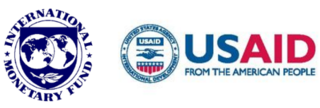
Posted by David Gentry[1]
In August 2015, the IMF and the United States Agency for International Development (USAID) signed a 5-year Memorandum of Understanding (MOU) to enhance cooperation and collaboration between the two organizations in pursuit of common objectives and further strengthening the effectiveness of their respective activities. The MOU covers IMF training for USAID staff; strengthening the capacity of development partner government officials; co-organizing events with the aim of supporting capacity development of their partner government officials; promoting representation by both organizations at meetings of common interest; and enhancing the exchange of information and knowledge sharing.
A one-week training course in public financial management (PFM) for USAID staff was the first activity to be undertaken under the MOU. Clearly, USAID has considerable capacity in many topical areas covered by the IMF, and USAID itself carries out extensive training of its own staff. Why, then, should the IMF conduct such training? The answer to this question lies in the fundamental goal of the MOU – training is an opportunity for the IMF to share with USAID staff its perspective on key issues as a way to enhance cooperation and collaboration.
The PFM course was designed to be particularly relevant to USAID’s field staff working in Africa. The Fiscal Affairs Department (FAD) delivered it as a pilot in USAID’s training center in Crystal City, Virginia to 34 USAID staff, of whom 11 were based in Africa. Three more deliveries of the same course are scheduled: in Accra, Ghana and Pretoria, South Africa, both in June, and in Washington DC in September. The training is oriented to non-specialists, and comprises a mixture of lectures, workshops, and discussion groups.
Key sessions of the training are:
- What the IMF does and why/how it promotes sound PFM;

- PFM and fiscal policy;
- Annual budget preparation;
- Medium-term expenditure framework (MTEFs);
- Investment spending;
- An overview of budget execution;
- Cash and debt management;
- Treasury single account (TSA);
- Financial control and audit;
- Fiscal and financial reporting;
- Fiscal transparency;
- Institutional aspects of PFM; and
- PFM reform planning: diagnostic tools and sequencing.
Based on experience gained in a classroom setting, the IMF, with USAID financial support, will adapt the course to an online medium. A Massive Open Online Course (MOOC) will be tested initially with USAID staff in early 2017, and will then be made available to the public in mid-2017. The course will also be oriented to non-specialist managers who, it is hoped, will see the benefits of good PFM practices, how different aspects of PFM inter-relate with and reinforce each other, and how to design effective PFM reform strategies.
Organizing this initial training with USAID has been an entirely positive experience for FAD. The Fund looks forward to additional activities to be carried out with USAID under the MOU.
[1] Senior Economist, PFM2 Division, Fiscal Affairs Department, IMF.
Note: The posts on the IMF PFM Blog should not be reported as representing the views of the IMF. The views expressed are those of the authors and do not necessarily represent those of the IMF or IMF policy.







